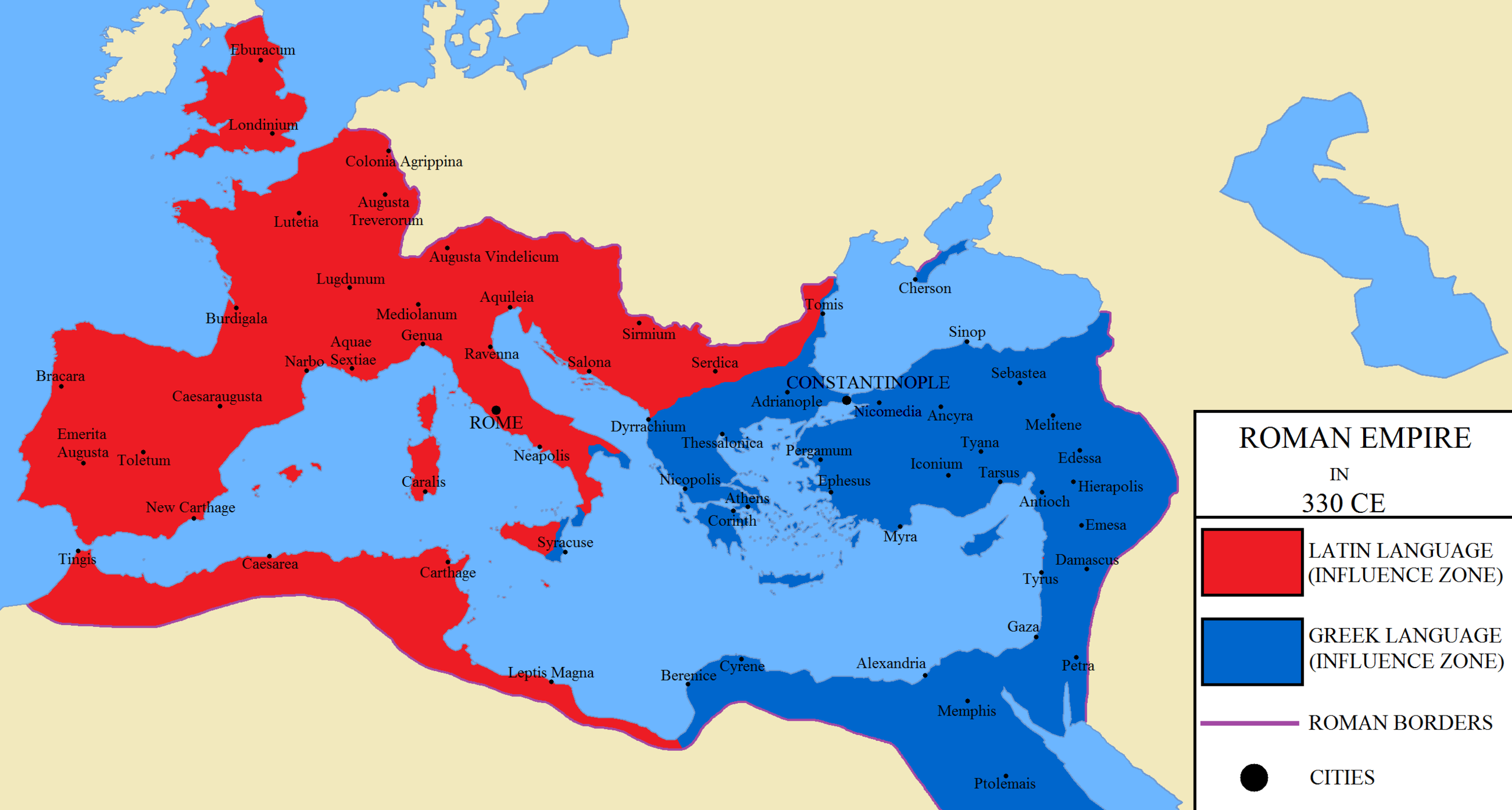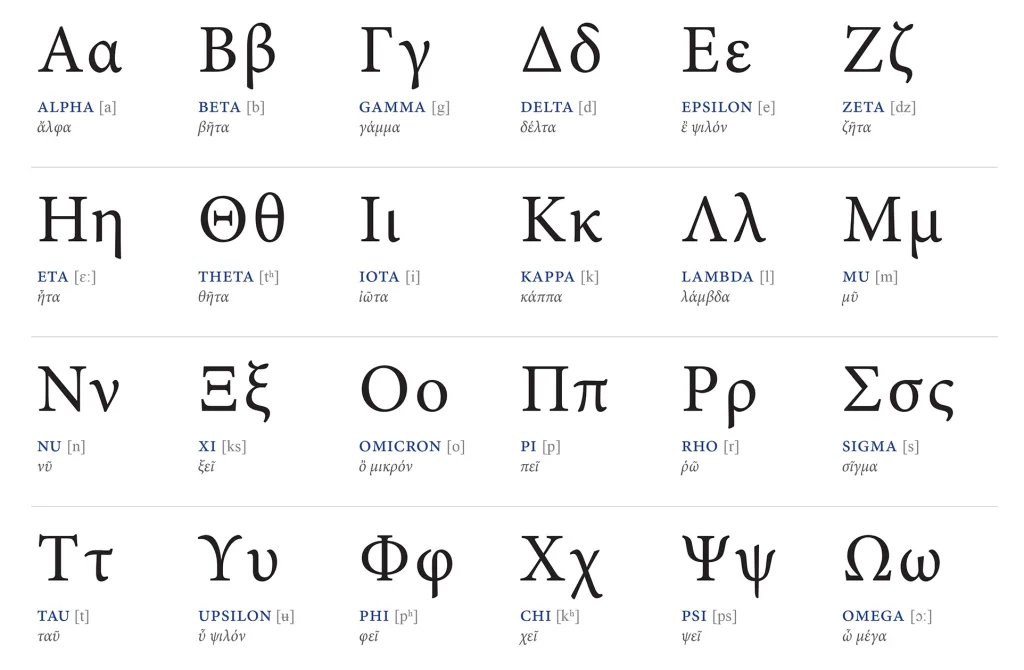Black Book
New member
Why study Ancient Greek? This is my attempt to inspire interest in learning this Holy and Divine language which holds a close resemblance to those of the Gods.

[8]
Ancient Greek had a wide range of influence in the Ancient World, expanding far past Greece to places such as Egypt, Constantinople, and really all of what was the eastern part of the Roman Empire. It was an important second language in Rome, as well, being an essential part of education for the elite. [9]
In Egypt, the Ptolemaic Dynasty was a line of Greek pharaohs such as Cleopatra who had Ancient Greek as their mother tongue:
While Cleopatra's learning of the Egyptian language will surely peak interest, it has unfortunately been largely lost for the time being, unlike Ancient Greek:
Ancient Greek, on the other hand, thankfully remains well-documented and is thus able to be learned and utilized by those willing to put in the time and effort to unlock its many secrets...
Ancient Greek is a deeply spiritual language, with multiple layers of meaning through numerology and anagrams:
Another example of the innate spiritual power of this language:
Along with Sanskrit and Egyptian, Ancient Greek is hailed as a language of divine origin, thought to be created by the Great God Thoth himself:
Ancient Greek still being completely feasible and worthwhile to obtain proficiency in remains true to this day. For example, Thomas Jefferson, Luciferian Founding Father of the United States, was well-versed in the language and was clearly aware of its greatness:
How to learn Ancient Greek?
If this discussion has peaked any curiosity, we SS who are interested in learning this great language can share resources with one another and partake in this journey together. While it is certainly not a simple task, working with this divine language can also serve as a meditative experience, activating the right-side of the brain and bringing with it many rewards such as the ability to read original texts from Plato, Aristotle, and other great minds. It all starts with planting a seed, nurturing it, and watching it grow from a sapling eventually into a grand oak; sharing resources and advice with one another can help create a fertile soil in which to plant said seed and help it flourish. I have many resources I have gathered and am eager to share if anyone shows interest.
Please post below if you are interested, as perhaps a forum section can be created for Ancient Greek if enough of us are.
Sources:

[8]
Ancient Greek had a wide range of influence in the Ancient World, expanding far past Greece to places such as Egypt, Constantinople, and really all of what was the eastern part of the Roman Empire. It was an important second language in Rome, as well, being an essential part of education for the elite. [9]
In Egypt, the Ptolemaic Dynasty was a line of Greek pharaohs such as Cleopatra who had Ancient Greek as their mother tongue:
Ptolemaic pharaohs were crowned by the Egyptian high priest of Ptah at Memphis, but resided in the multicultural and largely Greek city of Alexandria, established by Alexander the Great. They spoke Greek and governed Egypt as Hellenistic Greek monarchs, refusing to learn the native Egyptian language. In contrast, Cleopatra could speak multiple languages by adulthood and was the first Ptolemaic ruler known to learn the Egyptian language. [5]
While Cleopatra's learning of the Egyptian language will surely peak interest, it has unfortunately been largely lost for the time being, unlike Ancient Greek:
Philosophically or spiritually, in this order, I would think the best languages for understanding the soul would be Ancient Greek [not modern], Ancient Egyptian [language must be fully restored, almost impossible to learn with all it's hidden connotations that have been (((lost in translation)))] or Sanskrit [as a last resort]. Either of the three would work. -HP. Hoodedcobra666 [6]
Ancient Greek, on the other hand, thankfully remains well-documented and is thus able to be learned and utilized by those willing to put in the time and effort to unlock its many secrets...
The situation with languages is that Ancient Greek and Sanskrit are Divine. The reasons however are in how they are.
The situation of this is not because Sanskrit is the source, but because of how these languages are. The importance is underlined into what these languages have inside them, and so long a language supports certain principles, it's a Holy Language.
I do believe Ancient Greek is actually as old as Sanskrit and I have personal proof in regards to that. Both languages will lead to Divine outcome. Latin is also included here, and it's derived from the underlying concepts of Ancient Greek and Sanskrit. These were certainly what we refer to as "Demonic Language" or "Language of the Gods".
Egyptian has also been based on the same concepts, but these have been lost and largely corrupted, and that's the only reason it's not in the same category.
As long as the principles are maintained, a language is then Holy. Holy language is not always meant for everyday use. Languages form according to people's, the situation is what of these languages does possess most of the powers the Gods have bestowed on these principles.
Ancient Greek is maxed out and is a "perfect language", same as Sanskrit, equally lofty in perfection of these principles. To understand one must study these, and I have studied both. Egyptian is in the same category, but I could never really study it due to lack of connections and true teaching of the language, which seems to have lost a lot in time and especially due to modern translation. Ancient Norse also has many of the underlying principles, too. -HP. Hoodedcobra666 [1]
Ancient Greek is a deeply spiritual language, with multiple layers of meaning through numerology and anagrams:
In Ancient Greek the Name [Satan] would be as follows: Σ-Α-Τ-Α-Ν-Α-Σ.
A common practice in the Ancient Greek System is to move the letters of a word around, to find hidden meanings of said word. This is called "Ana-grammatism" which "Ana" means to reposition. "Gramma" means "Letter".
By applying repositioning of the letters of Σ-Α-Τ-Α-Ν-Α-Σ , we will get another word, which is one of the very obvious secrets hiding behind the Holy Name of God: Α-Ν-Α-Σ-Τ-Α-Σ .
If you are familiar with the above, you might recognize that actually something is looking weirdly familiar about this word. Well, this is basically the word from where the name "ANASTASIA" is coming from.
This world translates to the famous "Resurrection", because it really means "Resurrected One" or ΑΝΑΣΤΑΣ. -HP. Hoodedcobra666 [2]
Another example of the innate spiritual power of this language:
The pronunciation of the letter “E”, was what one had to say upon entering and exiting the temple of Apollo in Delphi. The choice of this letter was considered a great mystery of the God. The letter was pronounced exactly like the word “Hey” of today, a common greeting between people who speak English but also other languages. The word “Ei” in Ancient Greek [which was used for the greeting inside Apollo’s Temple], had however another spiritual notion. It translated as “That which truly is”, a sublime parable of the power of “existing". The letter E is strongly symbolized in his Sigil, too. -HP. Hoodedcobra666 [7]
Along with Sanskrit and Egyptian, Ancient Greek is hailed as a language of divine origin, thought to be created by the Great God Thoth himself:
The strong links between Ancient Greek and Sanskrit, point to me to these two as the sister languages very close to those of the Gods...
What is even more obvious, is that the carryover of meanings between the two AND Egyptian, prove beyond any shadow of doubt, that Father Satan is really our ancestral God and the Father of Humanity. This is the key central point I want to relate here, as Language hides in it information and meaning.
All of these languages are known to have divine origin, and for all three, the God Thoth/Hermes is credited for their creation. Modern day languages have been largely watered down, and contain few or any important or powerful elements. -HP. Hoodedcobra666 [2]
Ancient Greek still being completely feasible and worthwhile to obtain proficiency in remains true to this day. For example, Thomas Jefferson, Luciferian Founding Father of the United States, was well-versed in the language and was clearly aware of its greatness:
He also recommended that Ancient Greek be taught in public school beginning at age 9. [4]Thomas Jefferson’s lifelong love of the ancient languages was extraordinary, even by the standards of a self-consciously neoclassical age that linked genteel social status to classical learning. Reading “the Latin & Greek authors in their original, is a sublime luxury,” Jefferson wrote Joseph Priestley in 1800, the year in which a great electoral “revolution” would redeem the new republic and make him president. [3]
How to learn Ancient Greek?
If this discussion has peaked any curiosity, we SS who are interested in learning this great language can share resources with one another and partake in this journey together. While it is certainly not a simple task, working with this divine language can also serve as a meditative experience, activating the right-side of the brain and bringing with it many rewards such as the ability to read original texts from Plato, Aristotle, and other great minds. It all starts with planting a seed, nurturing it, and watching it grow from a sapling eventually into a grand oak; sharing resources and advice with one another can help create a fertile soil in which to plant said seed and help it flourish. I have many resources I have gathered and am eager to share if anyone shows interest.
Please post below if you are interested, as perhaps a forum section can be created for Ancient Greek if enough of us are.

Sources:
[1] https://ancient-forums.com/index.php?threads/facta-non-verba.85332/#post-439705
[2] "A Secret About Satan's Name : Satan Is God" by HP. Hoodedcobra666
A Secret About Satan's Name : Satan Is God
Father Satan, will soon rise in the future as the undisputed Truth of mankind. In the end of this, it will look very obvious, but currently, we are exiting an era of atrocity and lies done against Satan. The very name "Satan", who jewish researchers and Zionist worthless souls decided to...ancient-forums.com
[3] from the book "Thomas Jefferson, the Classical World, and Early America.”
[4] https://en.wikipedia.org/wiki/Thomas_Jefferson_and_education
[5] https://en.wikipedia.org/wiki/Cleopatra
[6] https://ancient-forums.com/index.php?threads/on-suffering-a-conversation.64046/page-2#post-293536
[7] https://satanisgod.org/AzazelHC.html
[8] Picture from: https://en.wikipedia.org/wiki/Languages_of_the_Roman_Empire
[9] https://www.historytoday.com/archive/language-roman-empire








